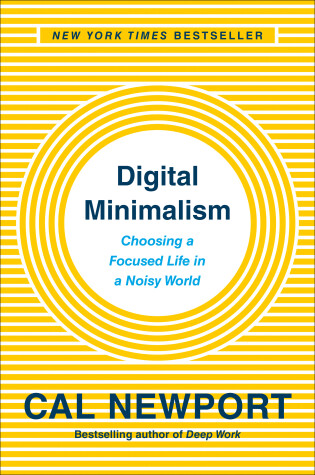I’ve been on a minimalist journey for past two-ish years, so Digital Minimalism is a book that naturally came onto my radar. I like the idea of digital minimalism, but I don’t think the way that the author presents it here was very convincing. In all honesty, this felt like a long winded blog post about why Facebook is bad and how smartphones have taken over our lives. I don’t disagree with either point, but I think the real message got lost in those sentiments.
I’ll start off by saying that it felt weird to have a man who has never used Facebook (or any social media) tell me to stop using Facebook. He’s clearly not an expert on that subject, but I was still interested in how to apply minimalism to my digital life. I 100% agree that most of us spend too much time on our social media app of choice and that we should be more mindful with our usage. This also applies to other digital media, and I immediately deleted the only three games from my phone, because I realized that I do plan my entire day around using them. That is bad, and I actually didn’t feel deprived the following day or weeks, so this tells me that those games weren’t really adding any value to my life.
Digital Minimalism is very focused on taking our social interactions and leisure activities offline and into the “real” world. Maybe he’s right, but also, what about the people who are unable to–or simply don’t want to–have face to face conversation or participate in activities outside of the home? (Let’s not even get into the fact that I read this during COVID-19 lock-down.) Social media and other online spaces may be the way they connect with other people. It’s unfair to assume that in person interactions are the only way to have meaningful conversation and experiences. This concession is not once mentioned and is a gross oversight.
I did find Digital Minimalism to be an interesting read. I obviously don’t agree with everything, but it did make me think about my own habits when it comes to my smartphone. The only social media site that I’m active on is Instagram and I don’t plan on giving it up, because I do find value and enjoyment in it. However, I am going to be mindful of the amount of time that I spend mindlessly scrolling. I could be using that time for something more engaging, such as reading or learning Japanese.
